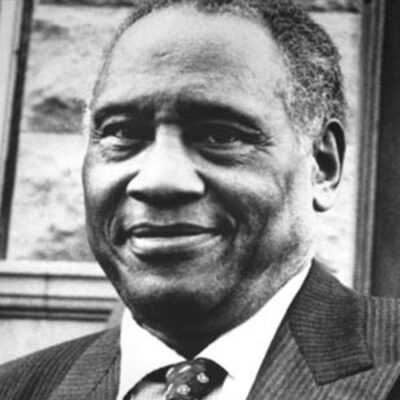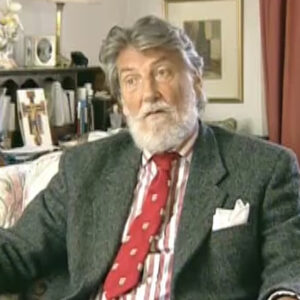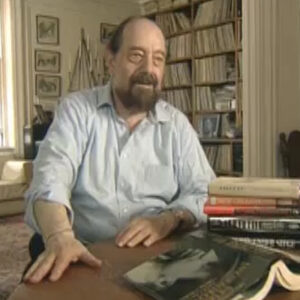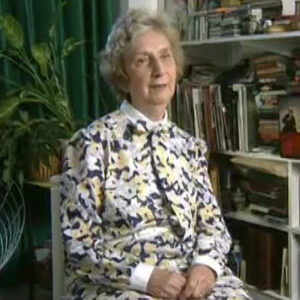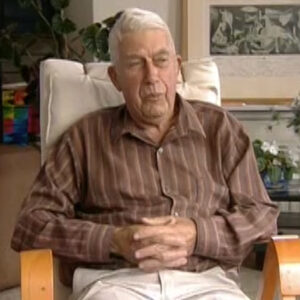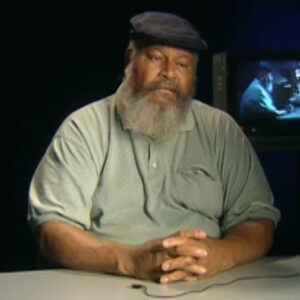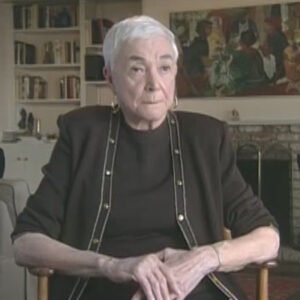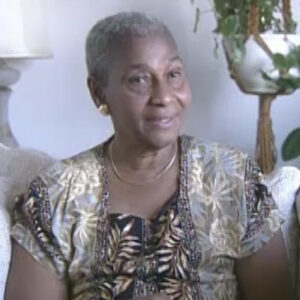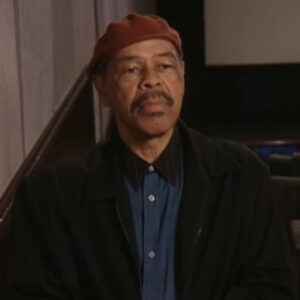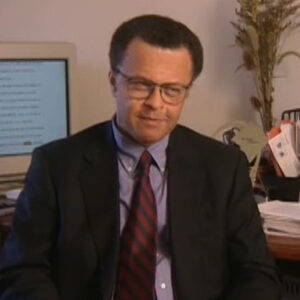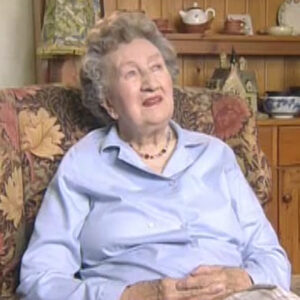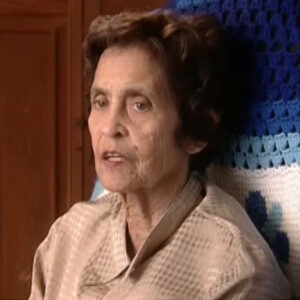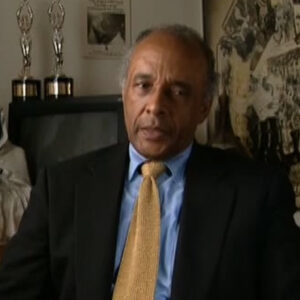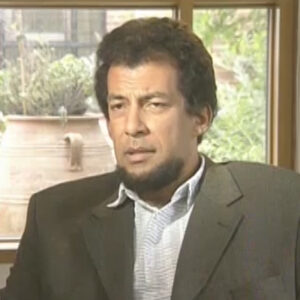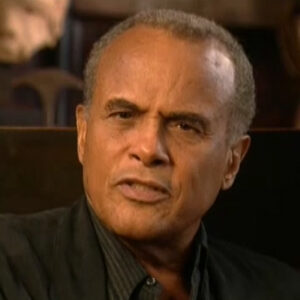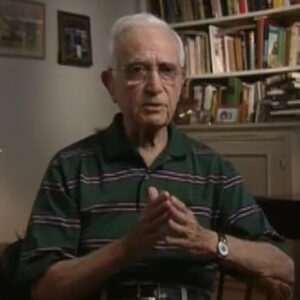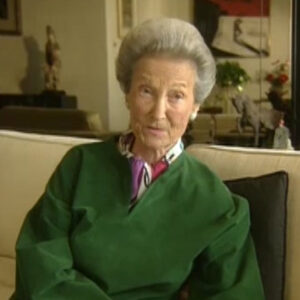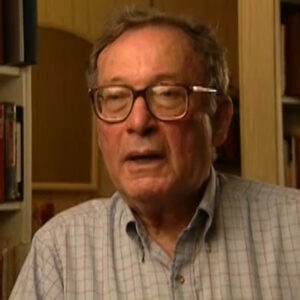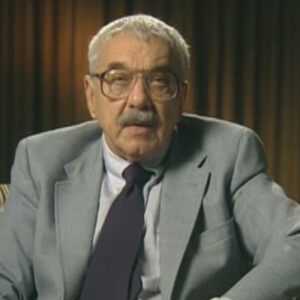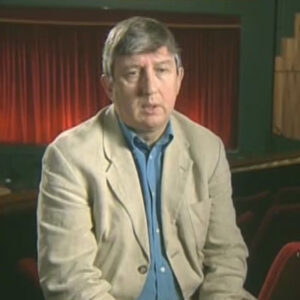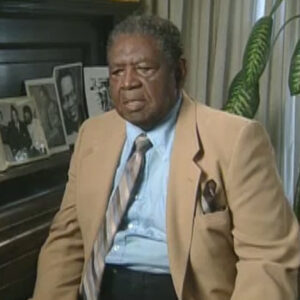Speaker First of all, tell me how long you’ve been singing with the choir.
Speaker I’ve been in the choir 63 years. I joined the choir when I was a lot of 17. I know never brought in off my membership. And I’m going into my 64 years. Really. What do you see in the bottom of downburst? As you say, the term is used in South Wales.
Speaker What are the different types of singers in the choir? What are they to pose as a top tenor section?
Speaker And you get the second tenor, you can’t eat it. The top notes are the thing. And he sings a very difficult part. The second part is a very difficult part. Then you’ve got the baritone section, then you’ve got the bottom of section.
Speaker When Paul saying, what did he think, the help?
Speaker Well, he sang solo with the choir, but if he had been a member, what he would have or should have been in the dome? Yes, we do suck two or three others like you.
Speaker Give him the cards, come back in the spring and tell me. OK, first of all, tell me something about your family and mining of your father.
Speaker Well, I was I was born into a mining family. My dad was a miner. His father was a miner.
Speaker And I lived in a village which composed of more miners than any any other form of of living, you know.
Speaker Have you seen the conditions getting better for miners over the years?
Speaker Oh, yes. I worked a bit in the mines and I can honestly say I worked the old fashioned type of coal when where you were you were boss. I was glad you were boss would be here in the coal. I need to give you a shout, give me a call and you’ll be using what they call a little Kerlin box, you have to understand it and you’ll be going through like a rat as long as you were looking in and picking up the call and bringing it back and putting it in the trunk. And I could go on until the truck was full.
Speaker How many hours a day did you have to work? Eight when I was that.
Speaker So we’re the people who never saw daylight.
Speaker Well, yes, say some of them, didn’t you see some of them? Yeah, yeah, yeah. You say whether they go early in the morning, the day after being at the top, the cholerae at six o’clock in the window, it would be dark. And by the time they go to 24 out, the travel window goes dark, wallabies fall and they wouldn’t see much daylight. Uh. Plus, the movies, D’Albert.
Speaker All. Going to tell me, how had you heard of Paul Robeson, when was the first time you heard of Paul Robeson?
Speaker Well, I can remember. Seeing the film Proud Varly to be stellar again, please. It was the first time you heard of Paul Robeson when I went to the pictures to see the film, which was made in the Ronda the Valley and is called Proud Providea. That is my first recollection of the gentleman.
Speaker What did you think of that film?
Speaker Well, it was a Welsh background, the typical U.S. bit of it far fetched, you know, you know, but apart from that and there’s a quite good, good entertainment.
Speaker What do you think of Paul Robeson?
Speaker Well, he was very good. He was singing and he was singing with a local choir. And in the film, they brought in this great bass to sing with him. And it was caused confusion in the village and in the neighborhood and in the outlying districts. They brought this man in to sing with them and after the doctors, the part of the film.
Speaker Did you think that it was unusual that a black man played a role in that film?
Speaker Wasn’t it unusual for the time and the miners to react?
Speaker Yes, because up to Paul Robeson, they with all due respect, I don’t think I’d seen a black man.
Speaker And what about the other people?
Speaker Well, then there was no many people that are they don’t to Cardiff and you’re going to the dock area, you wouldn’t see many black people up in the valley’s. So when what was the reaction of the people to the film or everybody, you know, give you the thumbs up like it was a great show? It was typical Welsh mining village and the way of life.
Speaker Do you think the story was realistic?
Speaker Well, yes, it was to a point, it was to a point, but the only thing I didn’t, I was a young young lad anyway, but I never heard Minhas Singh coming out to the Cholerae and singing Welshman’s. I never experienced that. But it was it was in the film, you know.
Speaker Did you tell me about the first time you actually met Paul?
Speaker For the first time? I met Paul Robeson. I belong to a choir called Cummock Mill Choir, and we were successful down in the minors established in Perth called Five Times. So David Franciosa was the main secretary of the miners union in South Wales, invited us to go to the festival Alling in London, which is a big project for a local choir. So we took it on board and we were singing on a Sunday afternoon under the flag of the Colonial Freedom Movement. And the people who were basically attached to that was Fenner Brockway, the old labor stalwart from Slough. And we went up there on Paul Robeson, sang with us. And but the time I met him for the instant I met him was I was looking over into the Thames and gazing at the the big buildings around there. I will look back over and 19, 1960, and anyway, going up to London and seeing a lot of London. But in the meantime, when I looked around like Michael had gone, they’d vanished somewhere. So I thought, well, I got to look for a place to get into this auditorium and immediately struck a door with a lift. To the auditorium, so I got in pressing the button, the door open, I got into the lift and immediately after I got put my foot in that this gentleman came in after me. I’m just poor option. There’s only me and Paul Robeson and Lawrence Brown in the lift. We were. The only identification we had is choristers, and we we use the time we had a time with a little emblem on time and you picked up the day he said, oh, you belong to the choir. I said, yes, I’m asking you this afternoon. And he started asking questions about the choir. And I said, well, the next thing I knew that we were on we were on stage and singing with it. But I can tell you that he is is personality. If I was a youngster who followed football and had met Georgie best and it was that type of something thrilled me to meet a man in that calibre.
Speaker So in what way? That caliber image description.
Speaker Oh, well, you’re such a big man and a personality. Well, this place was on fire as far as I was concerned, but everybody seemed to like him. Yeah. Yes. Boy, terrific.
Speaker Well, now he to. Can you talk about how he seems to have a special relationship with the miners? Can you talk about why that was?
Speaker Well, I think the miners union in South Wales were fighting hard to get him out of America. And that was a relationship which led to the transatlantic call in input call pavilion in Istanbul. One year. Paul, on the other side, Paul was born in America and he was making a transatlantic call and thanking the miners for the effort that they were doing to try to get him out of his own country to travel.
Speaker Could you talk about why he couldn’t leave? Why what were the reasons that you heard why he couldn’t leave his own?
Speaker Well, the only reason I could go there was that McCarthyism was against him, the thought that he was carrying a communist flag. And spreading the gospel, as you know, from a political point of view.
Speaker And they didn’t like who and who kept them in America that.
Speaker McCarthyism, that the government of the day took his passport away from him. Can’t go very far without a passport.
Speaker Right, right.
Speaker And what was the union involved in trying to get him to the reunion?
Speaker We’re working on the miners union. We’re working hard this end.
Speaker What was what was the beginning of the relationship between Paul and the union? I mean, when did they first when did Paul first help?
Speaker Well, I think it went back to the to the fact that he had played the part in probably going back as far as their. You know, Kindu, something between them then and it. Kept on. And the front lines of the thing.
Speaker What do you what do you know about the the march from here to London?
Speaker You know, you heard a little bit about well, I can I can vaguely remember the Tartary. I know a person who did the march, what were the issues and why? Well, it is the the miners and lack of work in the valleys. They were fighting for the bread and butter sort of thing.
Speaker So who did they march? Why did they march to London? Did you get in touch with the government of the day, if you can say they marched to London to get in touch with the government of the day? I would say the whole thing.
Speaker Well, they marched to London to get in touch with the government of the day.
Speaker Good. OK, I’m sorry.
Speaker Because you said one more time they marched to London in protest march to get in touch with the government of the day.
Speaker Get them in.
Speaker OK, so they marched to London in protest of the conditions in South Wales. There was no no work, no unemployment. And to get in to get it right to the head of the well, they were marched to London to get in touch with the government of the day.
Speaker And how did Paul become involved in that? What did he do, you know?
Speaker Well, he used the support of the cause. You know, you’re going through the same thing in his own country. There was no no work for you colored people.
Speaker Right. And how and how did he help the miners and what did he do?
Speaker Well, I don’t know. Where are we? Well, he’s hanging on since the beginning, really come down this way down in South Wales. And he sang in the Mountain Ash Pavilion, which killed over 3000 people. And you come to Abbeville, Stafford and the flagship 787. And he sung in the pavilion of the established and Abbeyville was.
Speaker Was he a we you were you were a young man. Oh, yes, very much. Did you see him do that or.
Speaker I was outside the pavilion in a moment and I finally got a ticket to go in, so I went down there just to say that I’ve been a sort of thing.
Speaker He was very popular, I guess.
Speaker Yeah. Oh, yeah. Very much so.
Speaker Very much so. Uh, you know what he was doing in London at the time? I mean, uh.
Speaker When he came here, what he was going to use a little VSL challenges was as a singer. They are not as an actor because you went to Stratford-Upon-Avon and played in Othello at any.
Speaker Tell me about the time that you stood in for him.
Speaker Well, we were we were such a success. The concept of the of the contract was such a success that they thought they repeat it the next year, 1961. So. My part of the story, I am keen on sport, and I told my friend, look, I said we’re on a good weekend. He said, we will go up on Friday night and we get to Wembley and we’ll see England and Scotland play soccer. So that’s what we did. His friends in Wembley and we stayed there Sunday morning come along and we were told to report to Greenwich, to a cooperative municipal hall. I think it was one of the really early buildings of the place where they could hold conferences and all that, you know, which is they’re they’re all about the place today, you know. But anyway, Don, we went underground, which when I got to Greenwich, he got in the hall and the conductor came on to me and he said, well, listen, he said, we’ve got a telegram. Through his agent to say that he’s not singing this afternoon, he’s in. I’m asking you, he said, now’s your chance. He said, you you want to do the job. I said, I’m going to be much team sort of thing. He said, no, I know you can do it. He said, because I had already been singing him with a choir in different concerts. So he said, would you mind coming into the room? He said so that the people that were running the show sort of thing to listen for a few bars. So I stood up and so they said, carry on. And that’s the way the big chimes came and they took any more time. They told me and it was a resounding success, which I was very proud of. Very I was very, you know, taken up by Fancy’s singing in peaceful place. And Paul was no composing. The Voice says, no, I’m not going to suggest that. But on the other hand, I did it. OK, so.
Speaker The black thing or not? Uh.
Speaker You know, when you had when you said you’d already met him, right?
Speaker Yes. Oh, yes, I yeah. Yeah, I met him the your previous.
Speaker And that was when he.
Speaker That wasn’t the first time that was that was the first time I had met the gentleman in the lift of the pavilion and.
Speaker In London, ultimately, or two things before before I ask you that, why do some why our choir is so big here?
Speaker I mean, everybody I mean, is a big choir the big tradition of singing here for mining especially? Why is that?
Speaker Well, you know, we got two things running for us in Wales. Unfortunately, one of them is slipping away quietly. But as a gentleman told me this morning, it is going to come back. We like our rugby. And we like our singing. And the singing the question about singing has all come out from a religious background chopper’s. You know, you taught to go to chapel, you’re told to go to chapel, and the next thing you knew, you were in what we call a singing festival like Amanda. And the next thing happened, your parents would tell you it’s about time you joined Akoya. No, I was fortunate I had a family there, my my father’s brother was the first conductor of the choir. He was the first contact and my father was there and the other two brothers, so I joined as a young lad, not only me, but others, but it was it was the thing, you know, you you you you create for either sport. All music, if you’re lucky, you could do the both. So that’s why he got into the choir.
Speaker Well, you know, in America, the black people, they often do the same thing. Yeah, they have sports. Yeah. What music? Yeah. And Paul, as you know, was a very famous athlete.
Speaker That’s right. That’s right. So do you think there’s a connection there? Yeah. Why we sing hymns. Using Negro spiritual xinyu, exactly the same background sort of thing, the same pointing to the same end, but in different ways, different.
Speaker Did Paul ever talk about that? No, I know I can’t remember. Well, he actually four other people have said he used to talk about that all the time. Yeah, yeah.
Speaker And now you are at that you were present at that famous concert, the transatlantic concert, right?
Speaker I was. I was in Istanbul. It was input call. And every year they remain as established. The mining community was strong in South Wales. The first time that we competed on that, we were 23 male voice choirs. We had to cut ourselves to two lots. And you went one one to one chapel. The other one ran to the other chapel. And the best of the three to make up six, you got to pick three out of the two groups, 23 choirs and all of a fair standard, you know, very good standards. And just gone on and on and on is still running today. But unfortunately, it hasn’t got the strength and the power to do when the mining community there were people going down this road and taking stopped in buses from the valleys and going down there and taking a lunch with them, going into the pavilion in call. And he did not go out to do the necessary only lose a place.
Speaker So this is a big thing.
Speaker Well, it was the miners Ustad. What was it was almost on a par with our national Savard.
Speaker So, so, so tell me about this transatlantic cable.
Speaker Well, you know, the day that that took place, the other brick they call a halt about five o’clock.
Speaker I’ll leave it.
Speaker Don’t think they they call a halt about five o’clock just to have a break. Just the for the adjudicators and everybody else and a cup of tea and then they start back at our past 5:00. Well, during that break, there was an announcement made that there was a transatlantic call by Mr. Paul Robeson. And I was there when it happened. It was an emotional thing, he heard a man’s voice and if I remember correctly, he finished up by singing our one of our best loved folk songs heartedness all through the night. And he had his own words. The English words.
Speaker Barely. Yeah. Were people crying? I mean.
Speaker Well, everybody was filled with emotion. You know, this great man was singing on on the waves. I mean, they’re not so they weren’t so clever. And with the transonic calls, were they back in those days? But they got through and everybody was thrilled to bits. He thanked the miners union for the work that they put in to try to get him released from America. And you said you see him one day. And then you finished up with all through the night.
Speaker Hmm, yeah, sounds like it was, and they saying back to him, too, right?
Speaker Well, we sang all the commentary, all the audience, and we keep a welcome Needle said. People welcome in the veil and keep a welcome when you come back to Wales.
Speaker Yeah, I’ve heard a tape of that. Oh, yeah, some of the people so listen, in the long run now you’re older. You’ve seen a lot a lot of life. What do you think of Paul Robeson as a person now? You know, what do you think?
Speaker Well, I, I, I always said this. I would class him in the same mold as Mandela. He undoubtedly was for as is his brother, but I met when I when I talk about his brain, talking about his old king king and you know what I mean? And like Mandela fighting for the bottom dog. I’m sorry. Cut.
Speaker I want to get these people out of the way.
Speaker OK. OK, yeah, so I mean, just once again, give me your appraisal of this man.
Speaker Well, I would put him in the same moulders as Nelson Mandela because undoubtedly he was for his own people, for the bottom dog. He wanted to get a better standard of living for his fellow fellow man. And which Mandela is the same old?
Speaker Do you don’t you find it unusual that somebody from America comes all the way to Wales and does stuff? I mean, that’s not that doesn’t happen often, does it?
Speaker No, no, no, no.
Speaker Oh, and, uh, although we’ve sent people to to meeting, I remember had our famous pop song, Marunouchi. There’s a Welshman that wrote that, and he landed in Pennsylvania as a music director of one of the universities than any of this Negro spirituals.
Speaker Paul introduced them to the world, pretty much some of the choir singing.
Speaker Oh, yes, we do. Negro spirituals regular.
Speaker Did you do before, Paul?
Speaker I used to sing a lot of spiritual as well as to follow him anything.
Speaker I mean, listen to women and they record and all that business, you imitate him.
Speaker Well, I guess I could you know, I still like to sing Waterboy.
Speaker One of them and a motherless child.
Speaker Did so do the choir sing?
Speaker Yes. Yeah, we sing. Give me that old time religion and we’re singing tonight. Were you there when they crucified my Lord, which is a spiritual.
Speaker Did you know about that, most people in Wales? Did they know about spirituals before Paul Robeson?
Speaker No, I don’t think I think it crept into the repertoire of the of the male voice through the introduction of Forgotten has helped it, because in Goslin you get all types of choirs from Europe, from America. From. Doc quires excuse me, using the term, I think, bringing over Negro spirituals, a modern image, and it’s all intermingled, you know, with music. Music is a is a food of love. And if you know it again, music is the food of love.
Speaker It’s good, I’ve never heard that is that. Well, there you are. That is that law. That’s.
Speaker If music is the food of love, play on.
Speaker Got it. I feel like I just wanted you to say that. Do you think that?
Speaker Do you think. Excuse me. Do you think that poor Robson’s. Singing Negro spirituals help make Negro spirituals.
Speaker Oh, yes, yes, yes, yes, you’re definitely could you say whether he is singing or Negro spirituals brought him into the forefront and his. So what? When you sang All My River. That was definitely a winner.
Speaker OK, um. Tell me before you tell me a little bit about the conditions of the miners when you started today to go back, but at this moment or when they started, I did five years in the pit.
Speaker And every day I was going down, I was saying to myself, this is not for me, this is not for me, I’m going to get after this. No disrespect when my parents and my father had been there, but he lost his he lost his health care, which was one of thousands. The conditions there was was very, very poor. I was down the pit when they were cutting coal with it with a.
Speaker A pickup’s which we called in the ground, a mandrel. And you will master your boy and master warrior, master master Hugh in the call beyond his knees and on and give you a shout, come on, and then you’ll have what they termed a Kerlin box, 200 each, and you’ll be like a rat going through after after it, you know, and pick it up and bring it back and put in the trauma was. It is.

